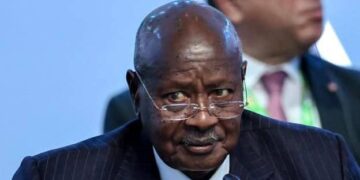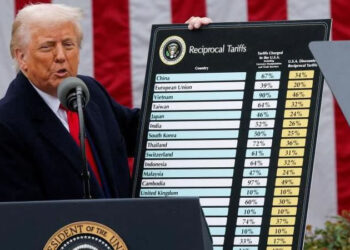By Enyichukwu Enemanna
Uganda’s President Yoweri Museveni has placed a ban on the importation of used clothing into the east African country, saying it stifles the development of local textile industries.
Yoweri who has attracted condemnation of western countries over his anti-gay legislation said the clothes being shipped into the country belonged to “dead Westerners”.
Uganda has traditionally imported large quantities of fairly used clothing, which many low-income individuals prefer due to its affordability.
Other East and West African countries also import used clothing and shoes to create opportunity for poor families to shop.
Local manufacturers in Uganda have however expressed concern over the dumping of second-hand apparel in the market, saying it undermines Uganda’s ability to climb the value chain of the cotton and textile industry.
“They are for dead people. When a White person dies, they gather their clothes and send them to Africa,” Museveni said on Friday.
At least 70% of garments donated to charity in Europe and the United States end up in Africa, Reuters reports, quoting Oxfam, a British charity.
“We have people here who produce new clothes but they cannot infiltrate the market,” Museveni said at a groundbreaking ceremony of nine factories in the Sino-Uganda Mbale Industrial Park in Mbale city.
Museveni said the ban would also extend to electricity meters and electric cables, saying they should be bought from factories in Uganda.
Uganda is a significant producer of cotton but much of it is exported in semi-processed form, with the value of its cotton exports ranging between $26-76 million per year in the decade to 2022, according to Uganda’s central bank.
The East African Community, a regional economic grouping of which Uganda is a member, agreed in 2016 to a complete ban on used clothing imports by 2019, but Rwanda was the only country to enact it.
As a result, the United States in 2018 suspended Rwanda’s right to export clothing duty-free to the United States, one of the benefits of the United States’ tariff and quota-free African Growth and Opportunity Act (AGOA).




































